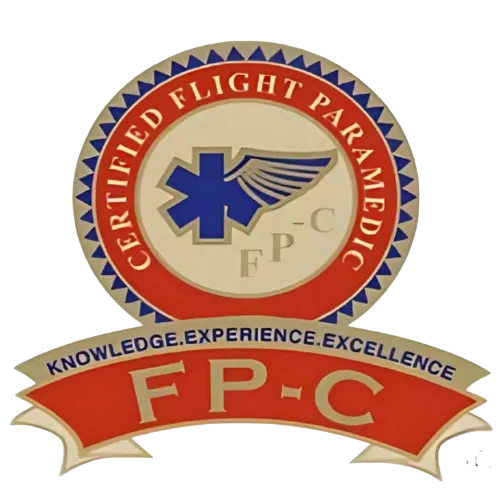
Flight Paramedic IBSC Online Approved Review Course
Categories: Professional Responder
about course
The Certified Flight Paramedic (FP-C) exam is tailored for paramedics aspiring to work in or already engaged with air medical transport services. Rather than focusing solely on specific programs or patient demographics, it demands a profound understanding of diverse transport environments, spanning urban and austere operations. Mastery of advanced patient care pathophysiology, coupled with proficiency in standards such as ACLS, PALS, NALS, ITLS, and industry accreditation, is essential for success. Unlike entry-level assessments, the FP-C exam evaluates seasoned paramedics' aptitude in critical care intervention across various transportation modalities, including ground ambulance, helicopter, aircraft, and marine/boats. The FP-C certification targets licensed or certified paramedics specializing in air medical critical care practice, acknowledging their expertise in prolonged field care in urban and austere settings.
FP-C Recertification
Recertification options for the Certified Flight Paramedic (FP-C) credential include the following:
• Complete the required continuing education (CE) credits
These recertification options ensure the certificate maintains competency and compliance with the domains listed on the Detailed Content Outline for the certification. Retaking the exam and or providing approved continuing education hours ensures compliance and continued competency are met.
Eligibility Requirements for Recertification
• Hold an unrestricted license or certificate to practice as a paramedic
•Complete an approved examination application
•Submit a paramedic license or certification for verification and approval
•Any restriction(s) must be reported to the IBSC
•Complete and submit 100 approved continuing education (CE) credits
•Pay the required recertification fees
What Will You Learn?
Introduction to Tactical & Austere Medicine
Care Under Fire
Massive Hemorrhage Management
Airway Management
Respiratory Management
Circulatory Management
Head Injury & Hypothermia Management
Triage Considerations
Security Response Considerations
Evacuation Care
Environmental Emergencies Pt.1 Heat & Cold Injuries
Environmental Emergencies Pt. 2 Allergic Reaction
Environmental Pt. 3: Inhalation & Electrical Injuries
Advanced Airway Management Pt. 1
Advanced Airway Management Pt. 2
Acid-Base Balance & Ventilator Management
Advanced Cardiology Pt. 1
Advanced Cardiology Pt. 2
Flight Physiology & Gas Laws
Ballistic, Blast, and Less Lethal Injuries
Torso Trauma
Head, Neck, and Spinal Injuries
Musculoskeletal, Soft Tissue, and Burns
How is the Course Provided?
eLearning Model: TAM-P Program
•Online or In-Person Course: The course consists of an interactive PowerPoint presentation that is self-paced or instructor lead and includes quizzes after each session.
All course students receive the following certifications:
• IBSC: Approved Flight Paramedic Review Course Certificate = 20 CEUs

Flight PARAMEDIC ibsc Approved Review Course
$350.00
WHAT WE OFFER
Our Best Selling Products

Leathered Granite
$65.00 $65.00

Calacatta
$20.00

Carrara white marble
$18.00 $20.00
JOIN A NEWSLETTER
©Copyrights 2025 GAMS. All Rights Reserved.
